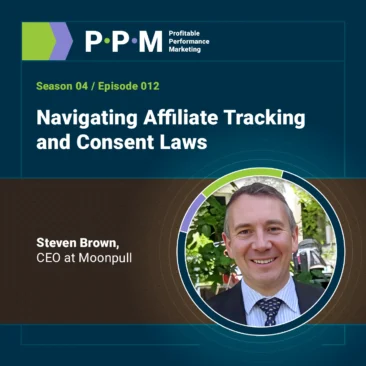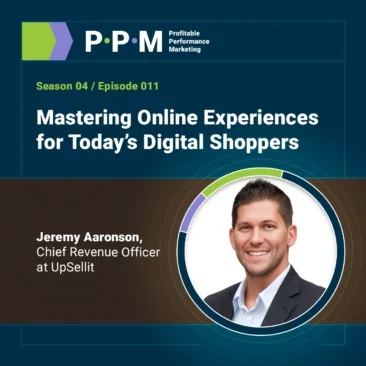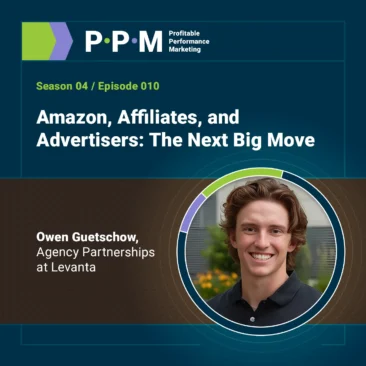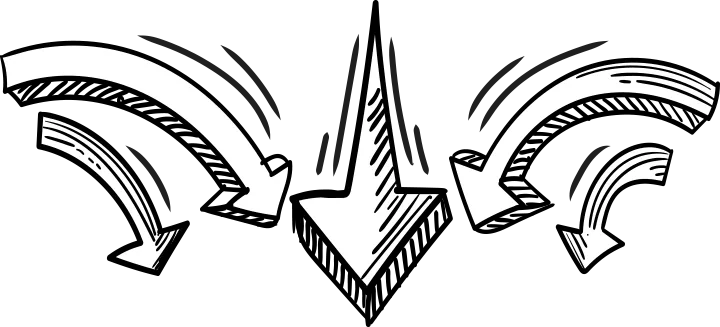Season 01 / Episode 016
Alan Rapoport – Selling your company then buying, selling it again
Guest: Alan Rapoport - Datafeed Client Relationship Manager at FMTC
Note: if you get only a 30 second preview, please log into your Spotify account, or find us on one of several other podcast services.
Summary
One of the greatest blessings I have from my career in affiliate marketing is to work with and get to know amazingly good people. Today’s guest is definitely one of those. Today I interview and chat with Alan Rapoport. Alan is currently the Datafeed Client Relationship Manager at FMTC and formerly the Co-Founder/COO/CFO and Director of Merchant Management at DealTaker.com. Alan has been in this business for 16 years and his background leads to some really great conversation.
In today’s episode Alan lays out the necessity of having an Innovator AND an Implementer in any start up and organization. You need the vision, and then you need someone who can execute that vision. We talk about the lessons learned from selling your business to buying it back and then selling it again and then we dive into the issues advertisers have with affiliate deal sites.
Alan has a tremendous amount of industry knowledge and experience and is one of the smartest guys I know. You definitely want to listen to this one all the way through.
About Our Guest:
Alan has been in this business for over 16 years and is currently the Datafeed Client Relationship Manager at FMTC (an affiliate content database), where he is responsible for maintaining the service level and relationships built around the data feed products. Previously, he served as the Co-Founder/COO/CFO and Director of Merchant Management at DealTaker.com.
Alan Rapoport on the Web
Listen
Share
Notify
Top Tips
For a start-up company to be successful, you need an innovator and an implementer. Alan explains that he had been laid off (for only a few hours), gave his brother a call, and he asked him to help with DealTaker.com. The relationship worked well – his brother served as the innovator, coming up with wild ideas and Alan served as the implementer, making sure all necessary steps were complete to make these ideas come to fruition (paperwork, hiring/firing, etc.). He mentions that when starting any company, you need someone with a vision, but you also need someone to execute that vision successfully.
If you plan to sell a company, try to find the best fit and get your affairs in order first. Alan explains that before they sold DealTaker for the first time, they spent a lot of time on presentations for buyers, as well as hiring an investment banker to help make introductions. He also mentioned that getting the company audited for financial records was a big lift.
The mindset around toolbars has shifted dramatically due to publisher branding. Alan talks about a time when toolbars were considered “evil” and often got you kicked out of programs. He details his conversations from over the years when they considered implementing a toolbar feature on DealTaker and how and why they shied away from it. He mentions that the recent branding of publisher websites has created a shift from affiliates seeking merchants, to merchants begging (and paying big!) to be featured on an affiliate’s website due to the huge success of “browser extensions.” Also, with a browser extension feature, a customer doesn’t have to leave a merchant’s website and it’s logical to want to keep a customer on the website during the entire process to reduce cart abandonment.
Highlights
The difference between an asset and a stock purchase is important.
“An asset purchase means you can pick and choose what you want to purchase from a company. When we bought our company back in 2012, they had a ton of employees, contracts and office space. We didn’t want to acquire any of it. If we had done a stock purchase, we would have acquired everything. We could have liquidated and let people go, but it would have been our responsibility and any liability would have been on us.”
Quotes
[14:40] – “It’s so important to keep company culture – you can have employees you trust with experience, but you have to keep the culture going during these times. Even just having everyone share what they had for lunch can build the team up.”
[43:20] – “For a company to be successful, you have to have the product, backend, and the marketing. If you have a fantastic product but you don’t get the word out and keep track of finances, you’re going to fail. Many things in business are three pronged – you need three things for the chair to stand on its own.”
[51:10] – “We had a magic number [of merchants] at DealTaker and it was 1,500. It might not be anyone else’s but we ran testing where we tried more and less, but our earnings per merchants decreased. Our parent company came in and increased it to 2,000 and then to 2,500 – and our total revenue decreased. It is about the quality of the merchants, but also pay attention these algorithms. It’s a game and you must find what’s best.”





